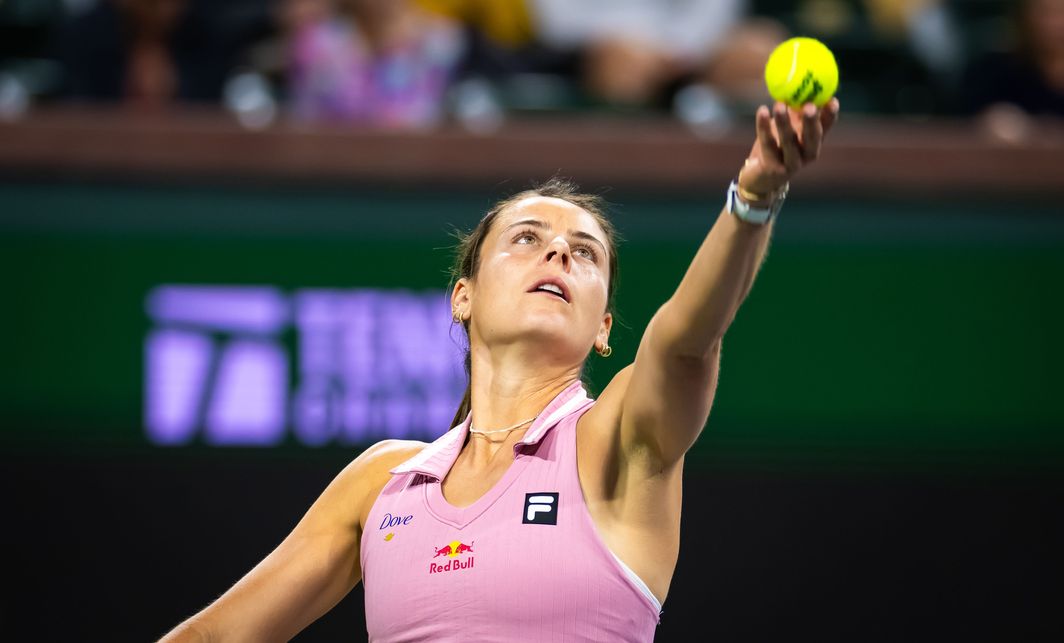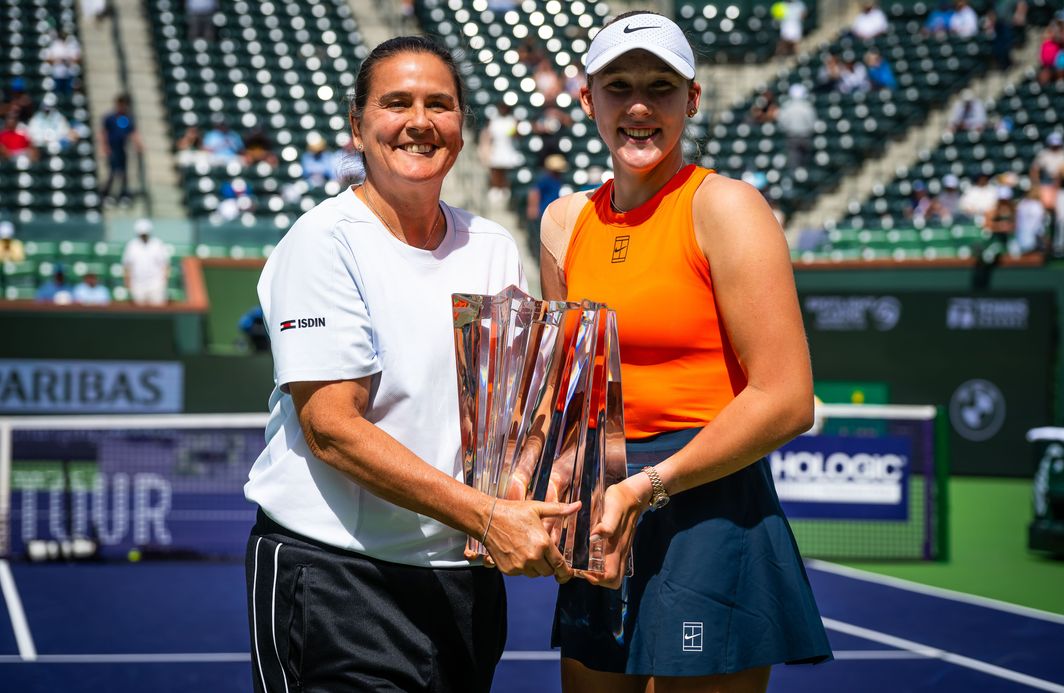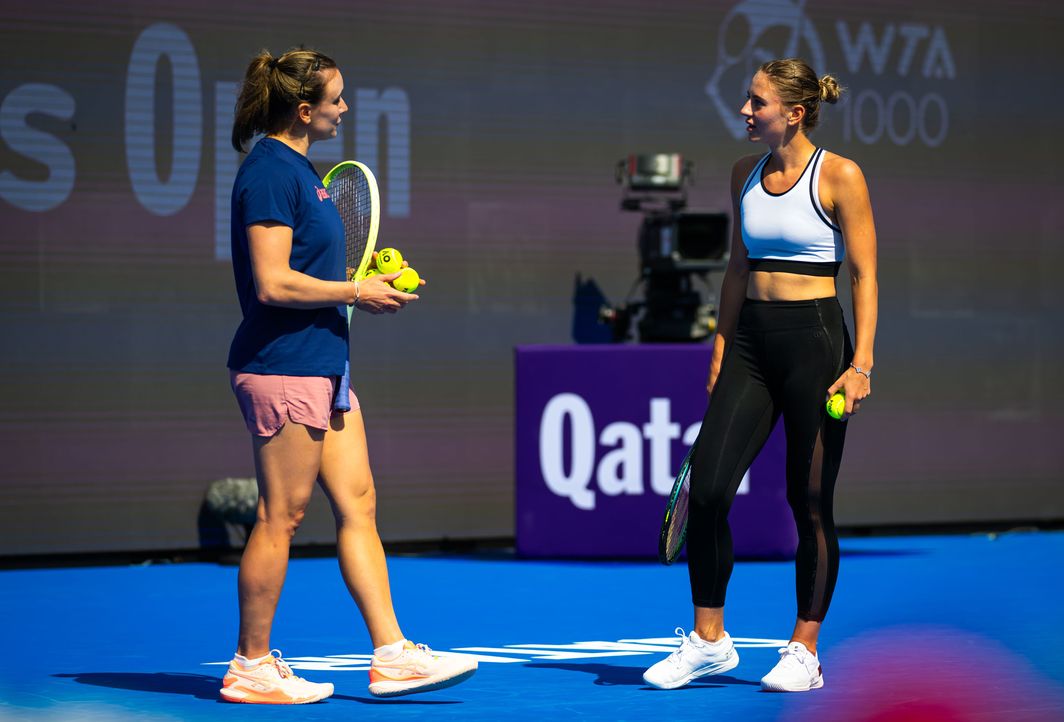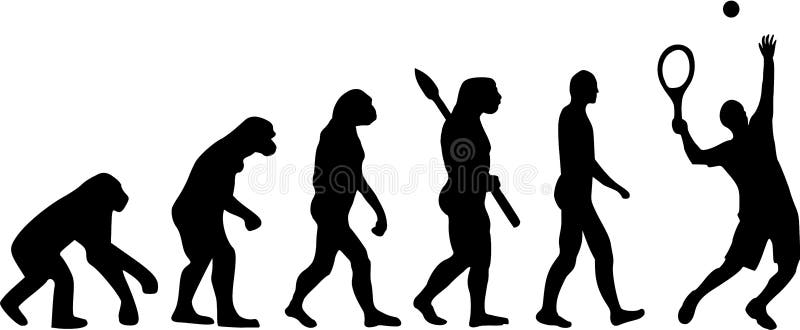Elite professional tennis coaching demands a diverse skill set, encompassing technical expertise, strategic insight, interpersonal abilities, and motivational techniques.
Traditional coaching often emphasized a strict, authoritative style. However, this approach is increasingly ineffective with today’s athletes.
Marta Kostyuk, known for her passionate nature, experienced a refreshing change when she began working with coach Sandra Zaniewska in 2023.
Kostyuk noted that in the past, coaches reacted negatively to her emotional displays, failing to understand or communicate effectively. Zaniewska’s approach was different, offering understanding and dialogue.
This novel approach, centered on listening, impressed Kostyuk.
Zaniewska explained that effective coaching is about listening to the player to gain insight into their on-court experiences. Coaches can only assist players by understanding their feelings and perspectives.
Listening and comprehending the player’s viewpoint is fundamental to successful coaching.
Peter Ayers/Emma Navarro

Peter Ayers began coaching Emma Navarro at age 14, recognizing her talent and work ethic at the LTP Tennis Academy.
Ayers described their evolving coach-player dynamic, transitioning from directive-based coaching in her youth to a more collaborative approach as Navarro matured.
Initially, Ayers provided clear directives, guiding Navarro’s development. As she grew, the relationship shifted towards shared perspectives, empowering Navarro as the primary driver of her game.
Ayers highlighted the importance of navigating challenges in long-term coach-player relationships, allowing for player growth and independence.
He emphasized that the player’s journey must be self-directed and intrinsically motivated.
Navarro’s successful transition to professional tennis, marked by a strong 2024 season, reflects this player-driven approach.
Ayers focuses on Navarro’s personal best, valuing her development and the journey they share.
Conchita Martinez/Mirra Andreeva

Conchita Martinez and Mirra Andreeva initially faced a learning curve in their coach-player relationship, particularly after losses.
Andreeva admitted to initially isolating herself and not heeding Martinez’s advice. However, she realized the importance of collaboration.
Andreeva learned to actively seek and value Martinez’s insights, establishing open communication.
Martinez prioritizes open communication and understanding, creating a non-judgmental space for Andreeva to express herself.
She emphasizes understanding Andreeva’s feelings and adapting coaching accordingly.
Their training focuses on comprehensive skill development, including aggressive net play to complement Andreeva’s defensive strengths.
Pre-match tactical discussions are a key element of their strategy, contributing to Andreeva’s strong performance.
Listening is crucial in their dynamic, with mutual understanding and feedback.
Post-victory, they share their experiences and feelings, reinforcing their partnership.
Martinez is proud of Andreeva’s progress and focuses on continuous improvement, shielding her from external pressures.
Sandra Zaniewska/Marta Kostyuk

Sandra Zaniewska’s coaching approach begins with a thorough analysis of a new player, like Marta Kostyuk.
Zaniewska analyzes the player’s game, seeks the player’s self-assessment, and aligns coaching with the player’s aspirations.
For Kostyuk, the initial focus was on refining her flat hitting style and reducing errors, finding a balance with Kostyuk’s aggressive approach.
Addressing Kostyuk’s temperament was a key aspect, considering the pressures she faced since her early successes.
Zaniewska emphasizes empathetic listening to understand the player’s journey and challenges.
Kostyuk has shown consistent progress under Zaniewska, achieving significant milestones and describing their relationship as professional yet enjoyable.
Maintaining a balance between friendship and professional hierarchy, along with open communication, is crucial for their successful partnership.
They navigate challenges together, focusing on continuous communication as the foundation of their success and future development.







